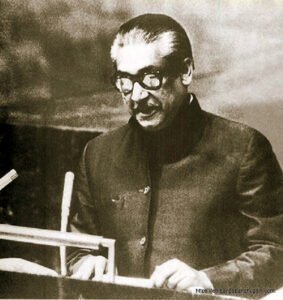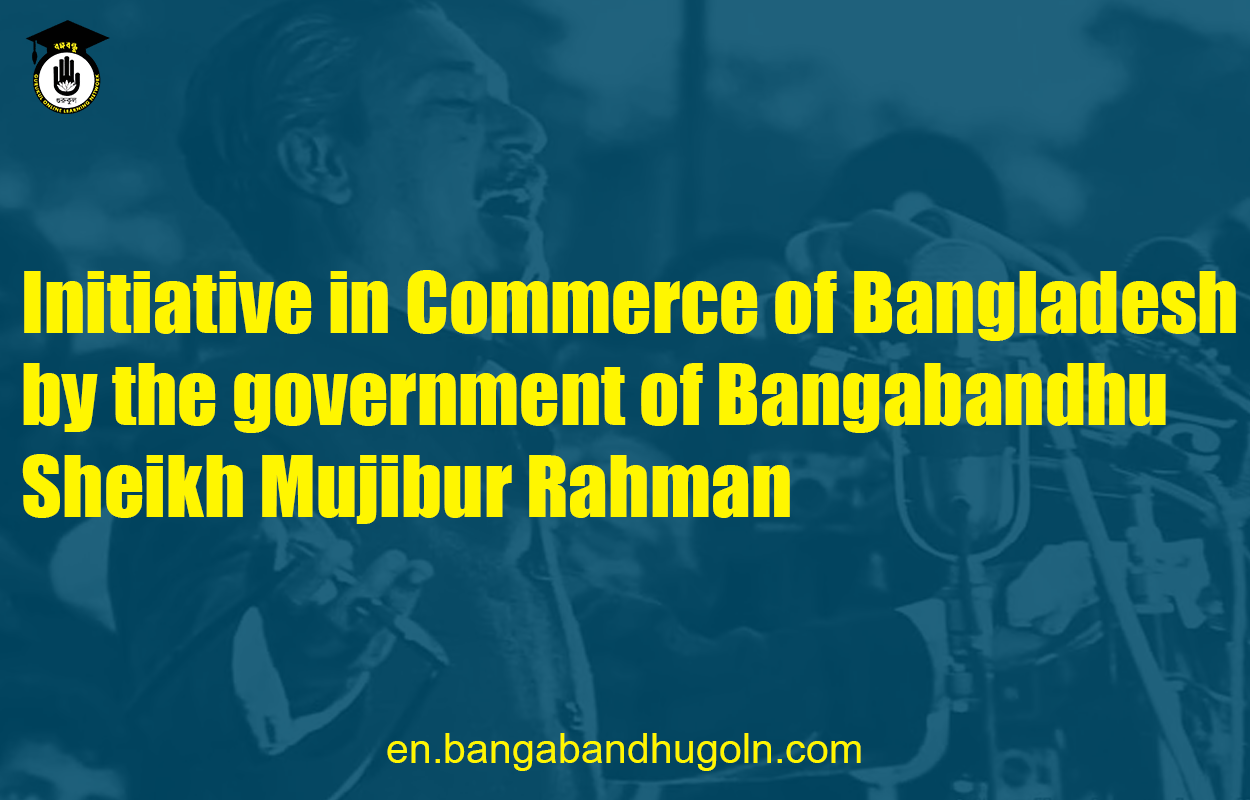Bangabandhu Sheikh Mujibur Rahman, the father of the nation of Bangladesh, was a visionary leader who made significant strides in various fields during his lifetime. One of the most important areas he focused on was commerce, which was vital for the economic growth and development of the country. Bangabandhu introduced several initiatives in commerce to enhance the economic condition of Bangladesh, which are worth mentioning.

Initiative in Commerce of Bangladesh by the government of Bangabandhu Sheikh Mujibur Rahman
One of the most remarkable initiatives taken by Bangabandhu in the field of commerce was the establishment of the Bangladesh Krishi Bank (BKB) in 1973. This bank was designed to provide financial assistance to farmers in rural areas who did not have access to formal banking facilities. Through the BKB, Bangabandhu aimed to increase agricultural productivity and reduce poverty in the country.
Another significant initiative taken by Bangabandhu was the establishment of the Bangladesh Shilpa Bank (BSB) in 1972. This bank was created to provide financial assistance to entrepreneurs in the industrial sector. The BSB played a crucial role in promoting the growth of small and medium-sized enterprises, which contributed significantly to the overall development of the country’s economy.
Bangabandhu also launched the Nationalization Order in 1972, which aimed to nationalize banks, insurance companies, and other large-scale industries. This initiative was aimed at reducing the concentration of wealth in the hands of a few individuals and promoting a more equitable distribution of resources.
Another notable initiative taken by Bangabandhu was the establishment of the Bangladesh Jute Corporation (BJC) in 1972. The BJC was created to promote the production and export of jute, which was one of the country’s primary sources of income at the time. The BJC played a significant role in stabilizing the jute market and increasing the income of jute farmers in Bangladesh.
Bangabandhu Sheikh Mujibur Rahman’s initiatives in commerce were crucial in promoting economic growth and development in Bangladesh. His vision and leadership helped to create a more equitable distribution of resources and provided opportunities for people in all sectors of society to participate in the country’s economic development. Even after his death, his legacy continues to inspire the people of Bangladesh to strive for a better future for their country.
See more:
